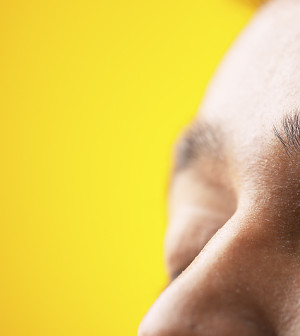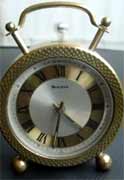- 8 Ways to Increase Dopamine Naturally
- 7 Best Breads for Maintaining Stable Blood Sugar
- Gelatin vs. Collagen: Which is Best for Skin, Nails, and Joints?
- The Long-Term Effects of Daily Turmeric Supplements on Liver Health
- Could Your Grocery Store Meat Be Causing Recurring UTIs?
- Are You Making This Expensive Thermostat Error This Winter?
- Recognizing the Signs of Hypothyroidism
- 10 Strategies to Overcome Insomnia
- Could Artificial Sweeteners Be Aging the Brain Faster?
- Techniques for Soothing Your Nervous System
As Clocks Turn Back on Sunday, Think About Better Sleep


FRIDAY, Nov. 1Don’t forget to turn your clock back an hour this weekend, and try some simple tips to get more restful sleep.
The switch from Daylight Saving Time to Standard Time officially occurs at 2 a.m. Sunday morning, and it moves one hour of daylight from the evening to the morning.
“For the body, the time changes are like jet lag — they sleep-deprive the patient at the time of the time changes,” said Dr. Jordan Josephson, a sinus, snoring and sleep apnea specialist at Lenox Hill Hospital, in New York City. “Even an hour changes your circadian rhythm and this can give you problems for weeks.”
But another expert said that people can ease into Standard Time by starting a bit early.
“The most important thing is to try to change one of the clocks on Friday and start following that clock to eat meals, sleep and wake according to that clock. When Monday comes you will be better adjusted,” said Dr. Praveen Rudraraju, director of the Center for Sleep Medicine at Northern Westchester Hospital in Mt. Kisco, N.Y.
Josephson advised that people also “exercise extra heavily the day of the time change and a few days to follow, to make sure that your body is tired so that you will have an easier time falling asleep.”
Common problems such as sinus issues, snoring or sleep apnea can also be exacerbated by the time change, he added.
You’ll likely appreciate the extra hour of sleep you’ll gain this weekend with the return to Standard Time. But experts say it won’t be enough to eliminate any major sleep debt you may have accumulated due to a hectic lifestyle.
Chronic sleep deprivation can affect attention levels, reaction time and mood, leading to decreased productivity at work, increased family stress, and potential health problems, according to the American Academy of Sleep Medicine (AASM).
The amount of sleep needed for good health and optimum daytime performance varies by age: preschoolers need 11 to 13 hours a night; school-age children should get 10 to 11 hours; teens must have at least nine hours; and adults should get seven to eight hours each night.
The AASM offers these tips for a good night’s sleep:
- Don’t exercise or have caffeine, alcohol, nicotine or heavy meals close to bedtime.
- It’s fine to eat a small snack before bedtime to avoid going to sleep hungry.
- Follow a consistent bedtime routine.
- Keep your bedroom quiet, dark and cool.
- Don’t sleep in on the weekends. That just makes it harder to wake up on Monday.
Rudraraju also offered one more helpful tip as winter nears. “Try to spend time outside during the daytime if weather permits, and dim the lights in the evening, so that your body understands that it’s time to wind down,” he said.
More information
The U.S. National Institute of Neurological Disorders and Stroke has more about sleep.
Source: HealthDay
Copyright © 2026 HealthDay. All rights reserved.










